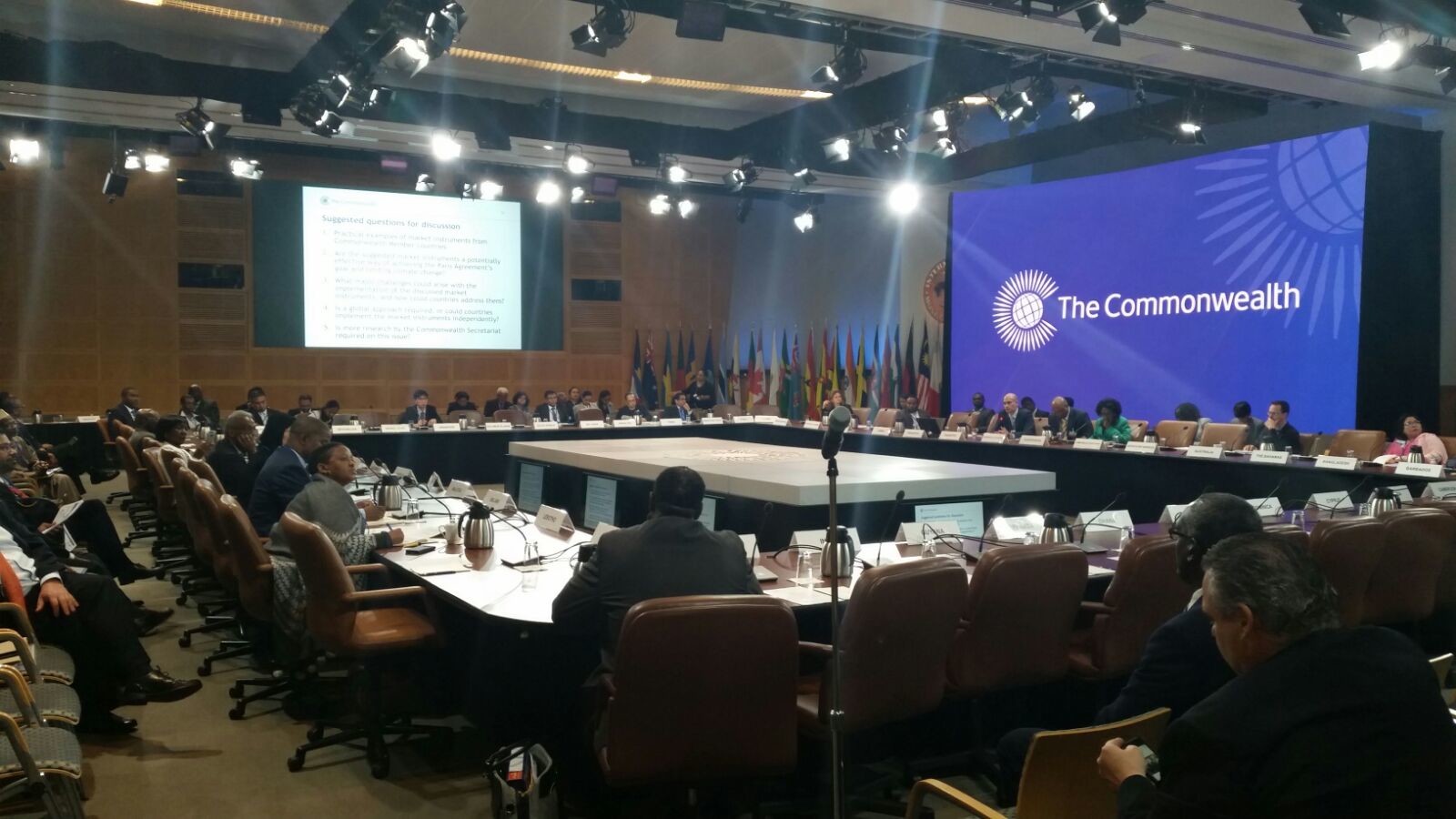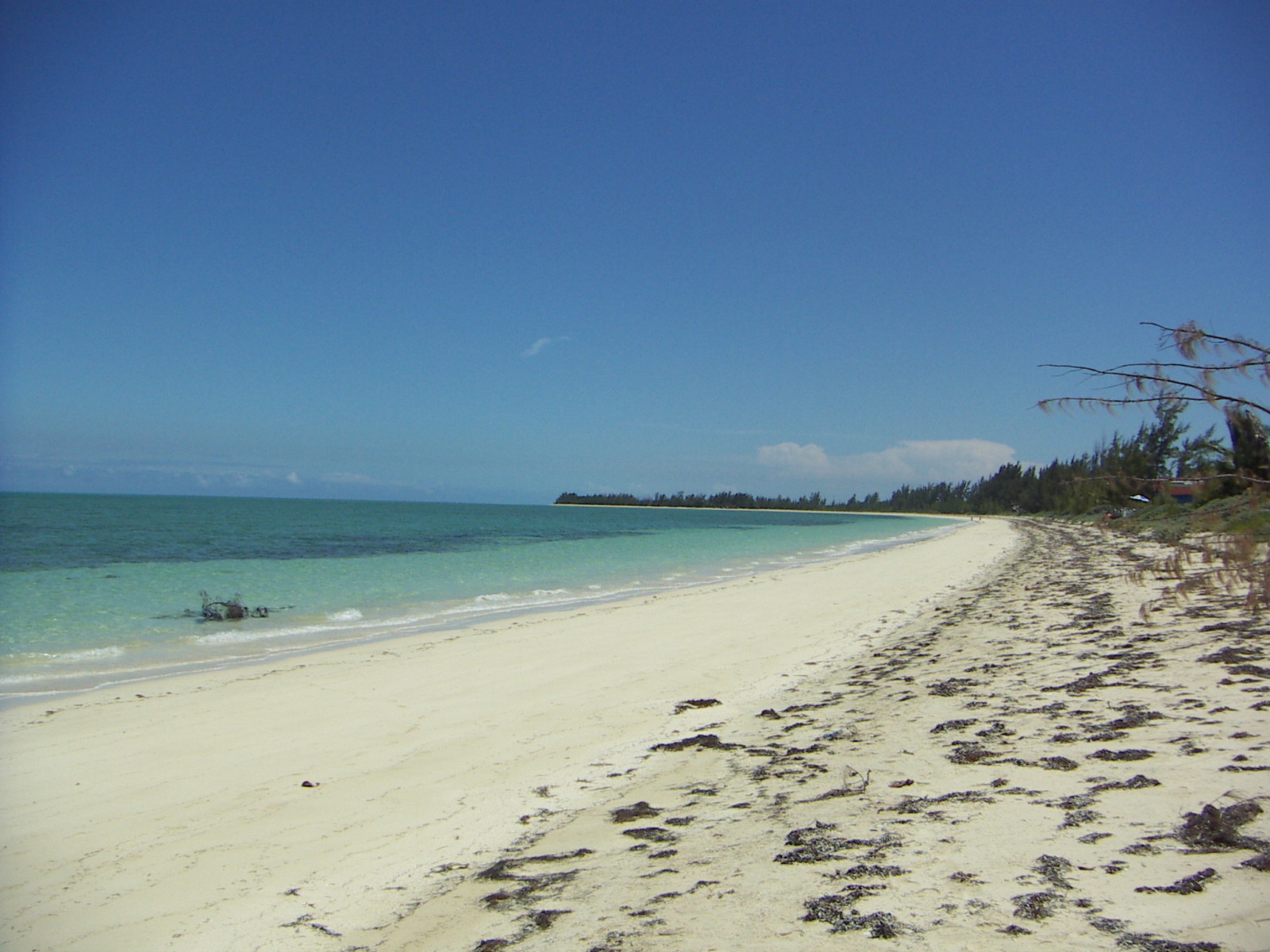There were 33 Commonwealth and regional meetings in the 2015-2017 period. The voices of our countries, both large and small, were heard in these high-level forums; none more so than at our 2017 Finance Ministers Meeting in Washington DC. There, in a forceful intervention, the Prime Minister of Saint Lucia, Allen Chastanet, called for funding rules to be changed. The impact of climate change on small island developing states (SIDS) needed urgent attention, he argued. The rules must change so that those countries could access funds more quickly.
Watch: Allen Chastanet, Prime Minister of Saint Lucia, at the Commonwealth Finance Ministers Meeting (CFMM) in Washington DC, 2017.
The Commonwealth played a very important role in the time before Paris in making the Paris Agreement possible. The clear messages by the meeting of the heads of state and government from the Commonwealth just before the Paris conference was a very important impulse to that process.
— Patricia Espinosa, Executive Secretary of the United Nations Framework Convention on Climate Change, speaking at Marlborough House, London, in 2017
Three category-five hurricanes did a lot of damage to Caribbean states in 2017. Parts of South Asia, too, endured floods that lead to hundreds of deaths. Meanwhile in Africa, Commonwealth member states had to contend with the dual perils of mudslides and desertification.
So Mr Chastanet’s words after our meeting at the International Monetary Fund headquarters were relevant to many of the ministers:
“While we’ve been theorising about the impact of climate change, this summer and other summers previously, we have seen in reality what it means. It requires us to accept the fact that some of our economies are going to be wiped out. We’re having to deal with the reality that our future is not within our control.
“We came here and we’re continuing to plead with the donor agencies that the SIDS (small island developing states) be carved out and that we compartmentalise resilience building and we allow there to be a special fund that we can access, that’s at concessionary rates. Time has run out against us and it requires us to bring the human side back to what has taken place.”
Mr Chastanet’s plea and others like it are being heard, and the Commonwealth is taking action. The meeting heard that the UK Government has pledged £100 million in aid. Of that, £8 million will be used to tackle climate resilience.
The rules change
The UK has also led the charge to change official development assistance (ODA) rules. This is to help countries hit by natural disasters thatare currently unable to access funds. In October 2017, theGovernment announced:
“As a result of UK leadership, donor countries at the DAC meetings in Paris today agreed to work on a process which could allow previous aid recipients to receive short-term ODA support in the event of catastrophic humanitarian crises, such as the recent hurricanes in the Caribbean, even where their Gross National Income per capita would normally rule them out of receiving ODA. This is a significant decision.”
There were delegations from 27 countries at the CFMM in Washington DC. Wealso held the Central Bank Governors Meeting and the Senior Officials Meeting there in October 2016. Together the three meetings garnered significant exposure for the most important finance advocacy issues. Those include climate financing, international taxation, diaspora finance, de-risking and the UK’s exit from the EU.
Another important meeting
At CFMM 2015 (Commonwealth Finance Ministers Meeting, Lima, October 2015), ministers reiterated the need to protect revenue bases of Commonwealth countries in the context of achieving the Sustainable Development Goals (SDGs), including through tax cooperation and trade, and they applauded the Secretariat’s work on de-risking, innovative finance and remittances, mandating further work in these areas.
“We honour the critical role that the Commonwealth continues to play in the development of our country. Seychelles is pleased to have been able to share its experiences in our areas of strength, and even more so, grateful for the assistance and knowledge that has been shared with us in areas where we lacked capacity.” –President of Seychelles, Danny Faure


